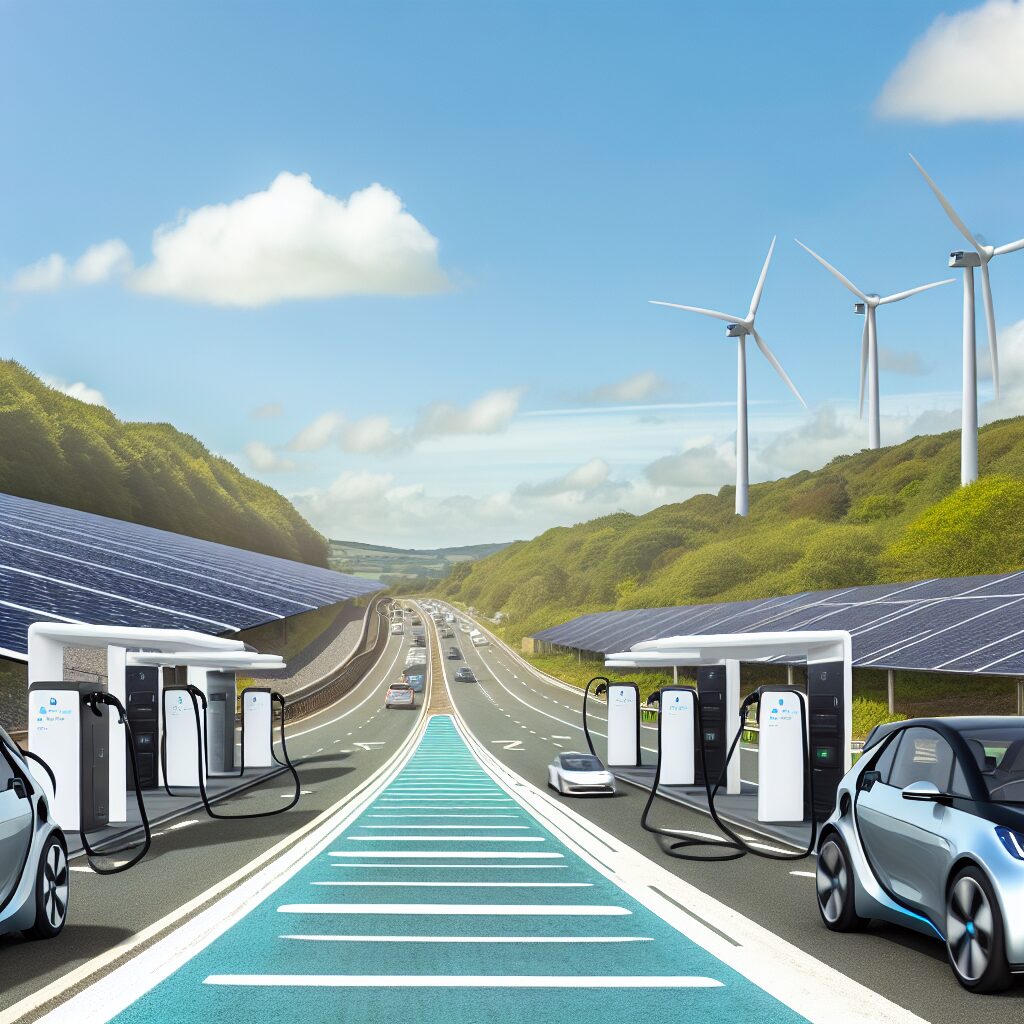Levistor and National Highways Team Up for Energy Storage EV Charging Trial
Electric vehicles (EVs) are becoming an increasingly integral part of our transportation ecosystem. As the demand for EVs grows, so does the need for efficient and sustainable charging solutions. In a significant step towards addressing this challenge, Levistor and National Highways have joined forces to trial an innovative energy storage solution aimed at enhancing EV charging infrastructure across major road networks.
The Partnership: A Step Towards Sustainable Transport
Levistor, known for its pioneering work in flywheel energy storage systems, has partnered with National Highways, the organization responsible for managing England’s motorways and major roads. This collaboration seeks to explore how energy storage can make EV charging more dependable and efficient, particularly in areas where grid capacity is limited.
Understanding Flywheel Energy Storage
Flywheel energy storage systems capture and store kinetic energy. Here’s how they work:
- Energy is stored by accelerating a rotor (flywheel) to a high speed.
- The energy can be released when needed by slowing down the rotor.
- This system offers rapid response times and high efficiency.
- It can help stabilize the electricity grid by smoothing out fluctuations in supply and demand.
Trial Objectives
The primary goals of this trial include:
- Testing the feasibility of integrating flywheel energy storage into existing EV charging stations.
- Determining the impact on charging speed and reliability.
- Evaluating potential reductions in grid dependency during peak demand periods.
- Exploring cost efficiencies for both providers and consumers.
Implications for EV Infrastructure
If successful, the integration of flywheel energy storage could have far-reaching implications for EV infrastructure:
- Enhanced Reliability: By providing a buffer against grid instability, flywheels could ensure more consistent power delivery to EV chargers.
- Increased Accessibility: With reduced dependency on grid capacity, it may become feasible to install charging stations in more remote or underserved areas.
- Cost Efficiency: The ability to store and release energy as needed could lead to lower operational costs for charging station operators, potentially translating to savings for consumers.
A Future-Ready Approach
This initiative aligns with broader efforts to advance sustainable transport solutions. As governments around the world set ambitious targets for reducing carbon emissions, innovations like these are crucial. By investing in smart infrastructure today, we can pave the way for a cleaner, more efficient transportation network tomorrow.
Looking Ahead
The results of this trial will offer valuable insights into the viability of flywheel technology in real-world applications. If successful, it could serve as a model for similar initiatives globally, demonstrating how public-private partnerships can drive progress in the shift towards sustainable transport.
The collaboration between Levistor and National Highways underscores the importance of innovation in achieving environmental goals. As the trial unfolds, stakeholders from various sectors will be watching closely, eager to learn how this technology might transform EV charging infrastructure.
Analyzed and outlined by ChatGPT-4o, images by DALL·E 3.
Source
https://www.current-news.co.uk/levistor-national-highways-energy-storage-ev-charging/

